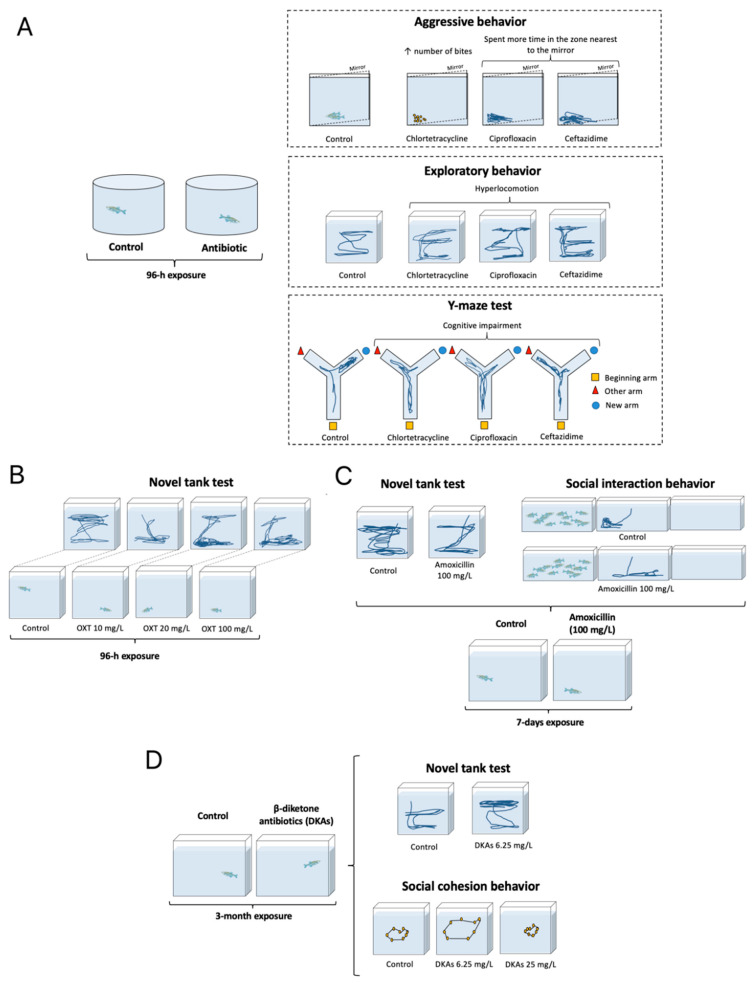Figure 1.
Selected examples of antimicrobial drugs’ effects on zebrafish behavior. (A) Exposure to chlortetracycline, ciprofloxacin, or ceftazidime for 96 h increases (↑) exploratory activity (more distance travelled), aggression (more bites in the mirror test), and cognitive deficits (more errors in the Y-maze) [42]. (B) Exposure to oxytetracycline (10–100 mg/L) for 96 h evokes anxiety-like behavior in the novel tank test [61]. (C) Exposure to amoxicillin (100 mg/L) for 7 days reduces distance travelled and social interaction [49]. (D) Chronic exposure to β-diketones (at 6.25 mg/L) increases time spent at the top of the test tank (an anxiolytic-like behavior) and alters (increases at 6.25, and decreases at 25 mg/L) shoaling behavior [41].

